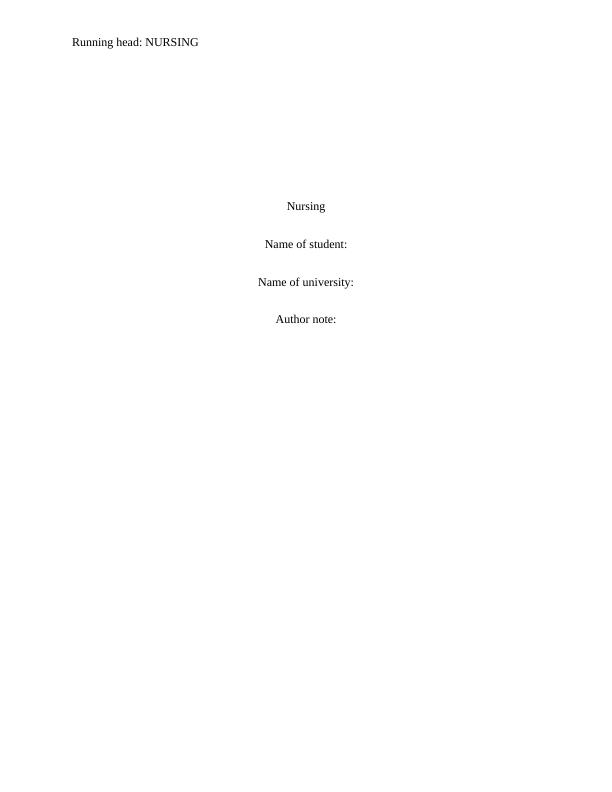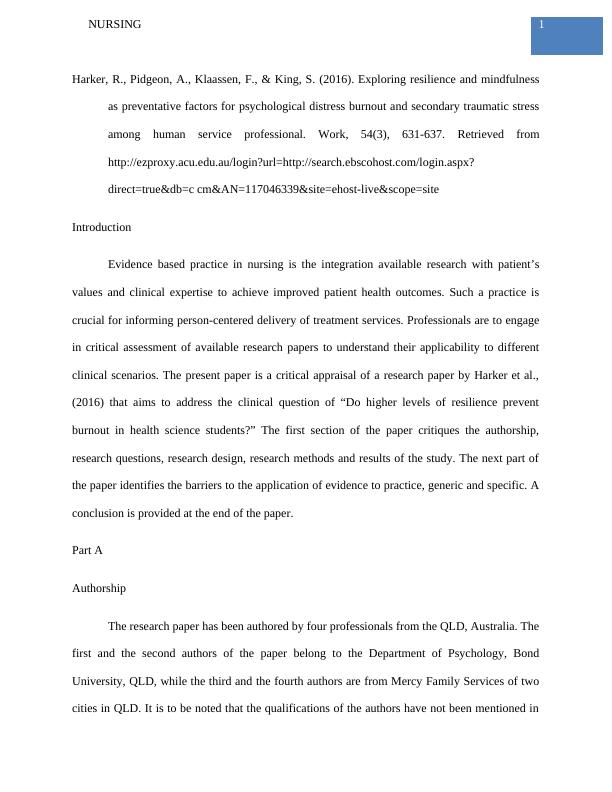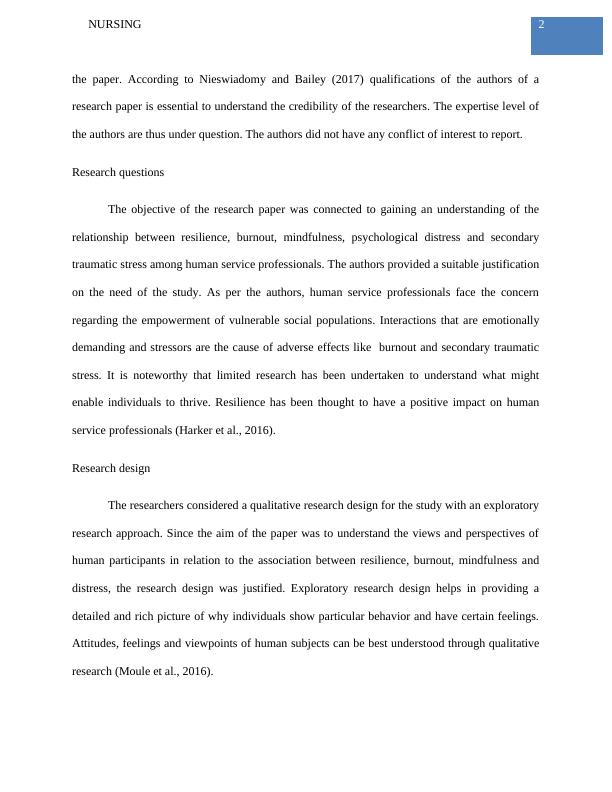Exploring Resilience and Mindfulness as Preventative Factors for Psychological Distress Burnout and Secondary Traumatic Stress Among Human Service Professional
This assignment requires the student to critically appraise a research paper on the topic of resilience and burnout prevention in health science students.
7 Pages1700 Words307 Views
Added on 2023-06-11
About This Document
This paper critically appraises a research paper by Harker et al., (2016) that aims to address the clinical question of “Do higher levels of resilience prevent burnout in health science students?” The paper critiques the authorship, research questions, research design, research methods and results of the study. The next part of the paper identifies the barriers to the application of evidence to practice, generic and specific.
Exploring Resilience and Mindfulness as Preventative Factors for Psychological Distress Burnout and Secondary Traumatic Stress Among Human Service Professional
This assignment requires the student to critically appraise a research paper on the topic of resilience and burnout prevention in health science students.
Added on 2023-06-11
ShareRelated Documents
End of preview
Want to access all the pages? Upload your documents or become a member.
Exploring resilience and mindfulness as preventative factors for psychological distress
|7
|1716
|183
Psychology Assignment | Psychological Distress
|9
|1609
|53
Effectiveness of Resilience and Mindfulness in Preventing Burnout among Human Service Professionals
|9
|1747
|236
Critical Appraisal of Evidence-Based Practice and Published Literature
|8
|1947
|314
Critical Appraisal of Evidence PDF
|8
|1741
|86
Effective Intervention to Reduce Psychological Stress in Human Service Professionals: A Critical Appraisal
|6
|1735
|107



